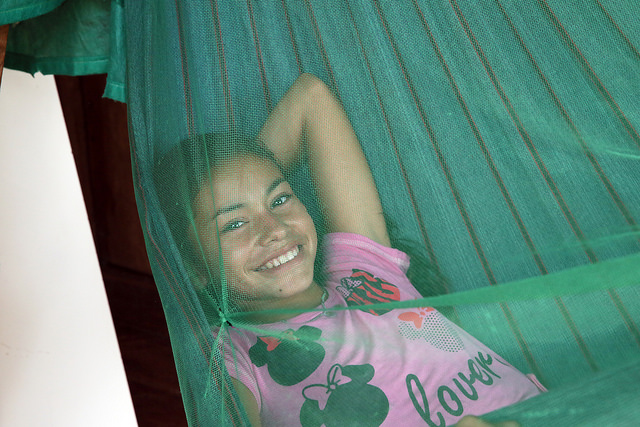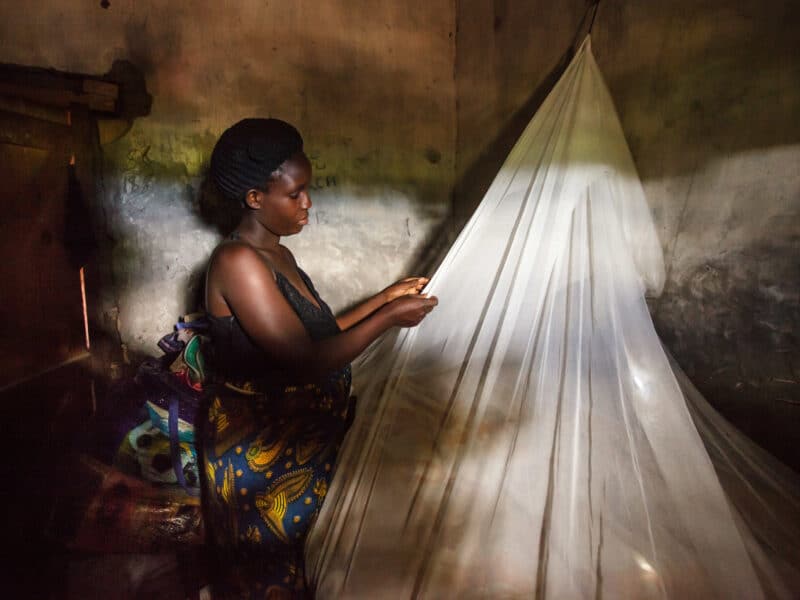This spring, Paraguay became the only country in South America to have officially eradicated malaria, the infectious, mosquito-borne disease that killed nearly half a million people worldwide in 2016.
That is exactly the type of success that the Pan American Health Organization aimed to promote when it launched the annual “Malaria Champions of the Americas” award a decade ago. Ten years on, with the Johns Hopkins Center for Communication Programs as one of the award’s partners, PAHO is still working to share the innovative programs and best practices making headway toward eliminating the disease.
The 2018 winner will be announced on next week on Nov. 6, which has been designated “Malaria Day in the Americas.”
“There is still malaria in the Americas and we think this award is a wonderful way to celebrate the achievements in the fight against it,” says CCP’s Gabrielle Hunter, who has been involved in the initiative since 2011.

A man sprays for mosquitoes in the Dominican Republic as part of a project that was named a Malaria Champion in 2017. Photo credit: PAHO
The three finalists in this year’s contest include two programs from Brazil and one from Suriname. Each year, the award committee selects the top three out of all of the entrants and then sends a documentary team to capture the essence of the program and the special factors that contribute to its success. Winning programs, the rules note, must demonstrate success in malaria prevention, control or elimination.
But this is not just a moment to celebrate victories such as Paraguay’s (a 2012 champion).
Despite long-term progress against the disease, cases have spiked worldwide recently – to 216 million cases in 2016, an increase of five million cases over 2015 – with significant upsurge in Latin America.
Growing resistance to insecticides and antimalarial medications is contributing to this increase. A breakdown of the government in Venezuela and the large expanse of the Amazon, where it is difficult to reach with services to detect cases and treat them quickly, have also played a role in the resurgence.
“When you start making a lot of progress against a disease, country governments tend to turn their attention to other issues and with malaria, if you let your guard down, it will resurge and come back,” Hunter says. “This award is one way to keep malaria on the radar and to keep on pushing to the last mile to eliminate malaria in the region. As progress toward eliminating malaria has stalled, even gone backward, we really need some good news and to show people what is working.”





